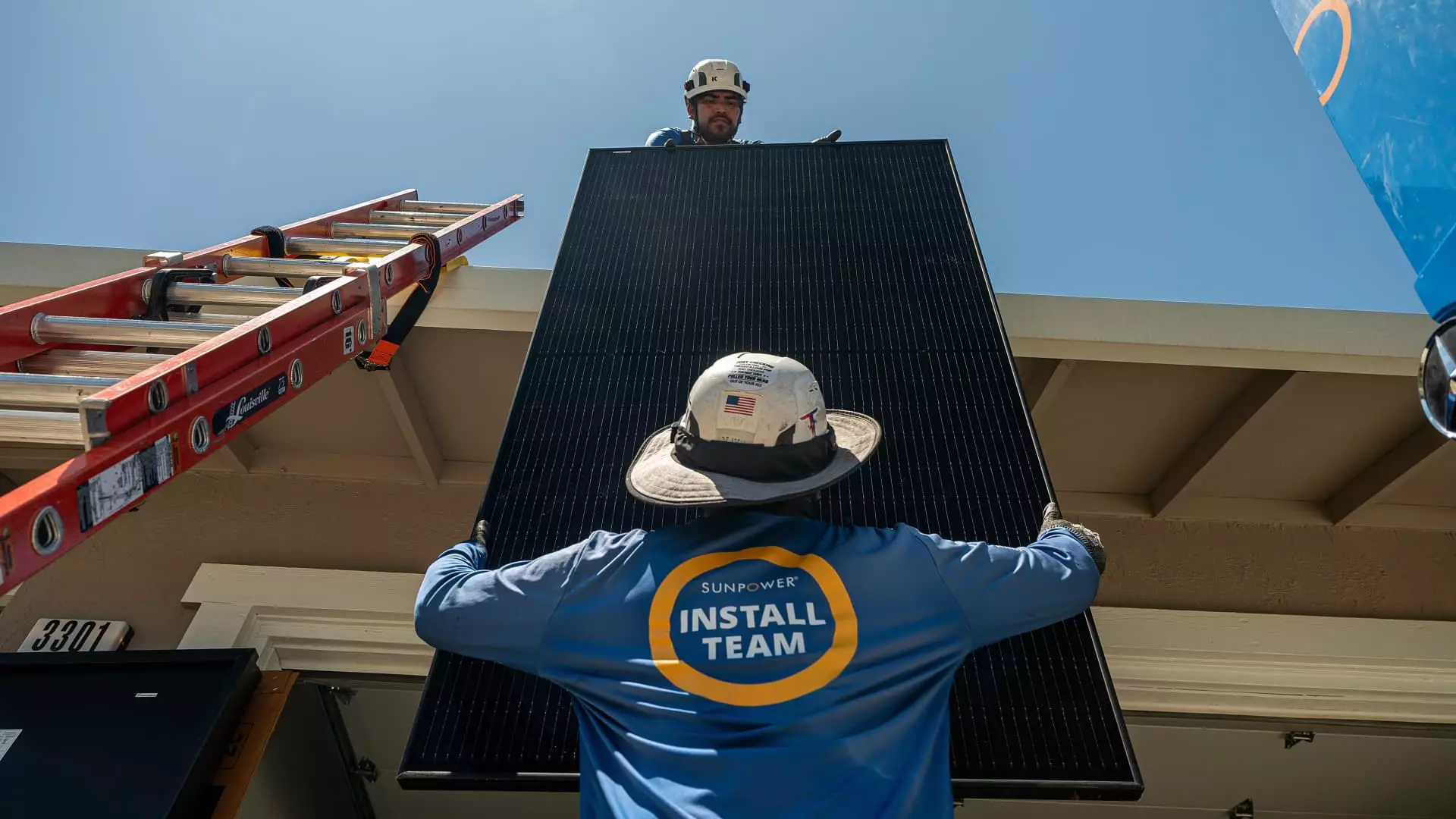SunPower, once a leading rooftop solar installer, has now fallen into the depths of bankruptcy. The company’s stock plummeted by 32% to a mere 55 cents per share, marking a staggering 90% collapse this year. In a Chapter 11 protection filing, SunPower declared assets and liabilities ranging from $1 billion to $10 billion, painting a grim picture of its financial health.
To mitigate its financial woes, SunPower has resorted to selling off its Blue Raven Solar and new homes businesses, along with its non-installing dealer network to Complete Solaria for $45 million, pending court approval. The company is seeking to expedite the sale process by aiming for court approval by mid-September. Additionally, SunPower plans to divest its remaining assets through the bankruptcy proceedings, signaling a significant shift in its business strategy.
While the solar industry as a whole has faced challenges due to high interest rates and decreased demand, SunPower’s downfall can also be attributed to allegations of misconduct in its reporting practices. The U.S. Securities and Exchange Commission issued a subpoena to SunPower in February regarding revenue recognition practices, casting doubt on the company’s financial integrity. Furthermore, Ernst & Young, the company’s independent accountant, resigned in June citing concerns over potential misconduct by senior management in financial reporting.
SunPower’s bankruptcy filing and subsequent asset sales serve as a cautionary tale for the residential solar sector. The company’s struggles underscore the importance of financial transparency and ethical business practices in an industry that heavily relies on investor trust. As interest rates continue to fluctuate and market conditions remain uncertain, companies in the solar energy space must prioritize compliance and accountability to navigate challenges and ensure long-term sustainability.
The rise and fall of SunPower serves as a stark reminder of the pitfalls that companies can face when financial mismanagement and misconduct go unchecked. As the solar industry evolves and matures, stakeholders must remain vigilant in upholding ethical standards and maintaining trust and credibility in the market. Only through transparency, accountability, and adherence to best practices can companies in the renewable energy sector thrive and weather the storms of economic uncertainty.

